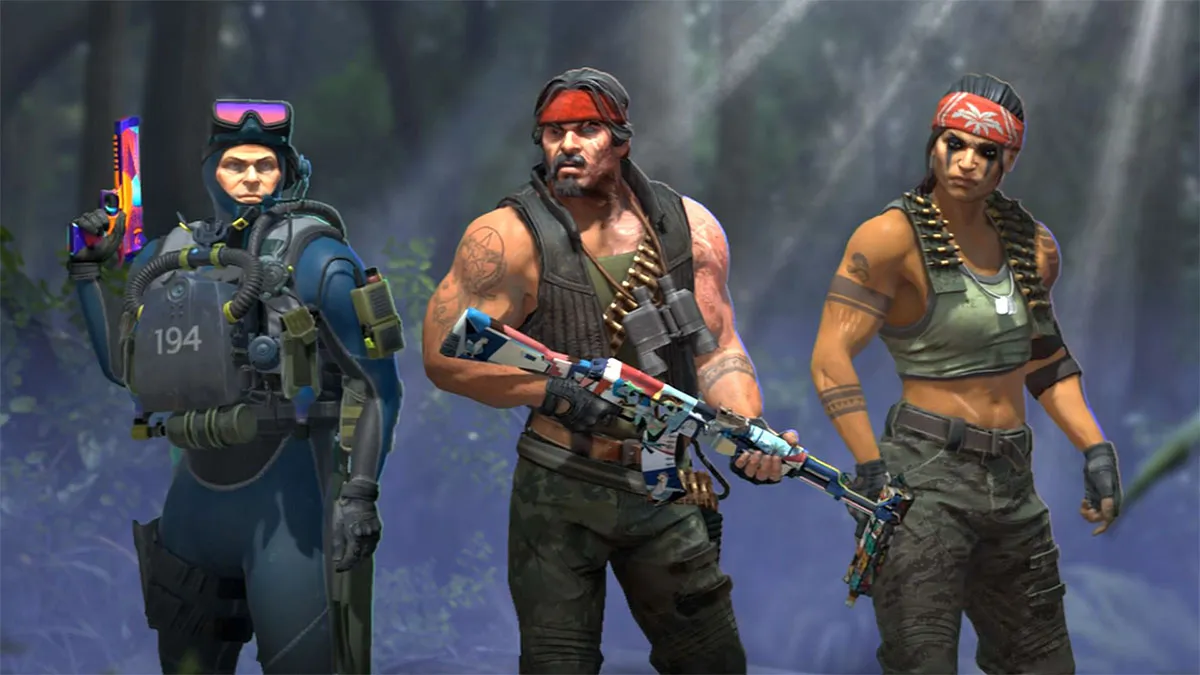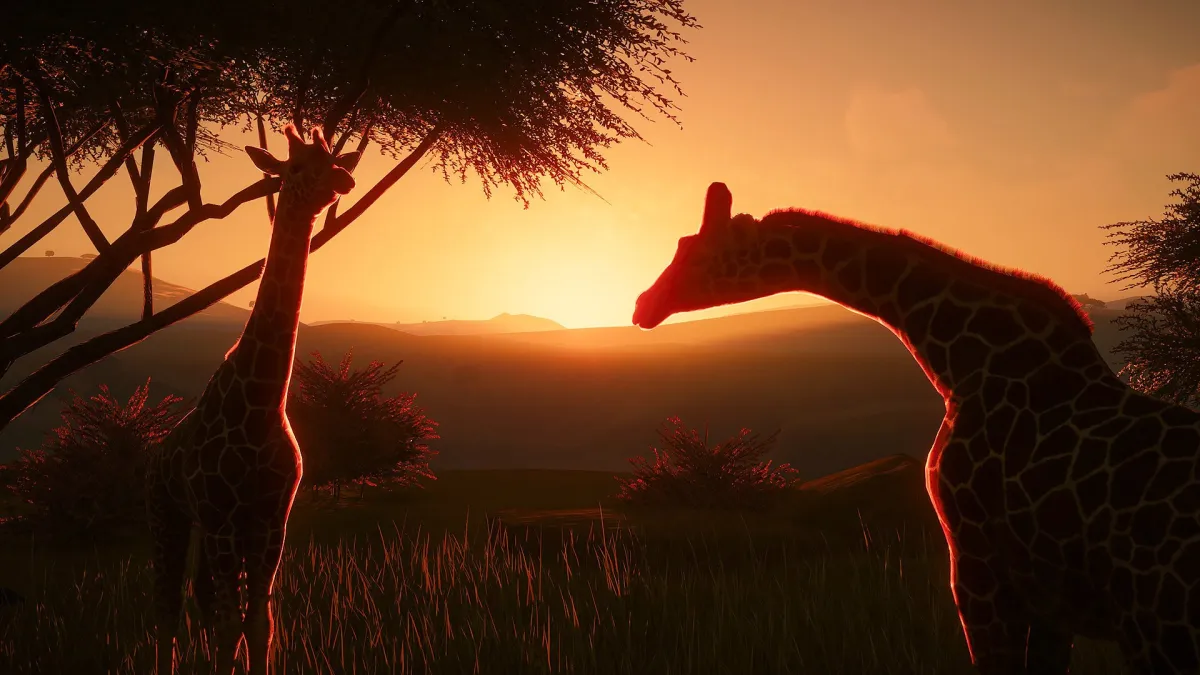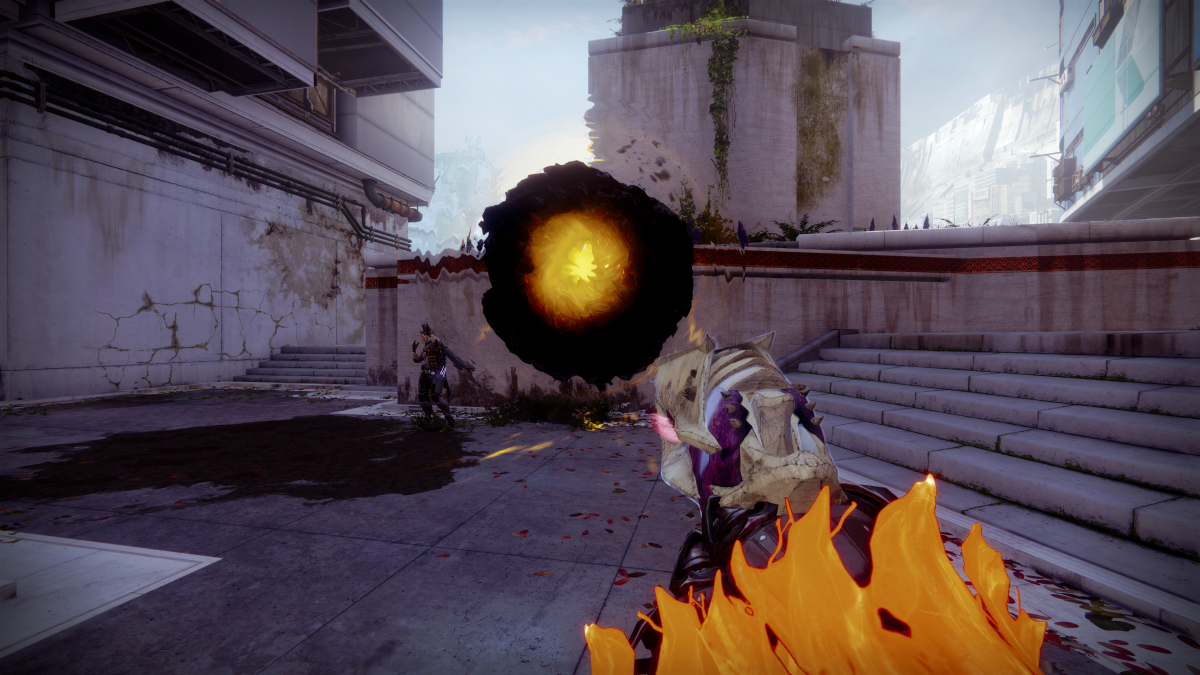[Editor’s Note: We’re not just a (rad) news site — we also publish opinions/editorials from our community & employees like this one, though be aware it may not jive with the opinions of Destructoid as a whole, or how our moms raised us. Want to post your own article in response? Publish it now on our community blogs.]
What’s the best game/system/developer of the year/decade/all time? On which specific grounds should video games be objectively judged in the first place? Should one set of criteria outweigh another? If so, by how much? What exactly defines a “video game”? Are video games art? Can they be divided into similar “-isms”? Where does a given genre end and another begin? Will gaming ever be as mainstream/respected as other forms of media? Has it produced a Citizen Kane? Which individual character best sums up a particular mythos? What does the state of the industry say about us as a culture? Could its current practices foreshadow an eventual decline? What will “revolutionize” video games next? Which other cultural phenomenon might be best cited as a parallel? How should one define “hardcore” and “casual”? Does the distinction really exist at all? What does it really mean to be a “gamer” in any form?
What does the future hold?
Sometimes it feels like every other gaming-related article or forum thread you read, no matter where you go, is yet another attempt to answer these so-called “Big Questions”, and other quandaries along the same lines. Their authors would frequently have you believe that they’ve only JUST stumbled upon the next step nearer digital Nirvana, heralding forth a fresh and provocative new perspective which (of course) “may change the way you look at gaming…forever”. Then again, plenty of individuals less interested in tooting their own horns also try their hand at “solving” these issues, not so much in the interest of “making an impact” but simply to ensure that they’ve “thrown in their two cents” – after all, nobody who wants to be “taken seriously” by their fellow controller jockeys can avoid taking such a stab at some point. Look sharp, son – if you haven’t sought out and wrestled with The Big Questions yourself, you can’t become a Gamer Of Note! And if you don’t have that distinction…well, shucks, what DO you have?

Naturally, the inevitable punch line takes a little more time to drop – cherished as these scattered bits of pseudo-philosophy are within our capricious little sub-culture, if you’re ever up to it feel free to ask even those with the highest-profile and most immovably-established stances on any of these topics whether or not they truly possess The Answer to end all others. Not in a disrespectful or sarcastic tone either – just a simple, straightforward inquiry requiring nothing more than a one-word response.
Assuming that this person is a reasonable sort (which, unfortunately, is far from guaranteed), he or she will acknowledge that, especially as its user base grows, gaming is by its very nature a wildly variable experience for each individual player, and that a near-limitless number of honest and “valid” answers to The Big Questions exist, depending upon the vantage point you’re speaking from (and how handy you are at putting your observations into words for others to digest). As such, while it’s possible to cook up a “generally accepted” statement of one’s own on these subjects, there will pretty much always exist an opposite stance, just as well-formulated as your own, out there to challenge it, whether by chance or design – like clockwork, clarifications and addendums are soon met by counter-clarifications and counter-addendums, and therein you have (what passes for, at least) “the current debate” within the gaming community. At the end of the day, if you ask a dyed-in-the-wool “Big Idea” gamer whether or not there will ever be a truly concrete Big Answer to any of the Big Questions, if he or she is truly willing to talk turkey the reply you get will be a succinct “no”.
In my mind, at least, this is a good time to shift the conversation over a few degrees, with a question of my own – When did Important Questions About Gaming start to mean more to us than Gaming itself?

Be sure to take note, I do NOT ask why anybody still asks the “Big Questions” at all – to be sure, just because something lacks a simple, “straight” answer doesn’t necessarily mean it isn’t worth voicing, and as gaming gains more presence it’s only natural that it be analyzed to a greater extent, and in manners it was never exposed to before. That, however, is as far as I go – by and large, the more I read, the more I see, and the more I play, the more I find myself surrounded by a gaming culture overtaken by an endless cascade of idle, self-important chatter, to the point where the original purpose of The Conversation and its inherent Big Questions has been utterly lost. Every time I lurch past the ever-crowded store shelves I’m exposed to more variety and choice there than ever before, but walk away less and less excited. I’m free to indulge in reviews and opinions from all over the world, but am simultaneously forced to watch formerly amiable fans tear each other’s internet throats out over once-innocuous differences in taste and opinion. The whoops and applause get louder and louder every time someone types “STFUAJPG” into a post, but I encounter precious few who truly take the expression to heart.
Take a moment, if you will, to picture in your mind society’s most blatantly stereotypical image of egomaniacal pretentiousness, the predominant such caricature in our present perception of society and its quirks – I speak, in plainer terms, of the so-called “great artist” who hangs a totally untouched blank canvas up in a gallery, declares it a work of genius, and slaps a multi-million-dollar price tag on it. Of course, there’s a reason why this semi-proverbial character has settled into our consciousness as a long-running joke. He hasn’t, after all, done anything remotely special in terms of technique or precision – any doofus can walk into an art supply store, spend a few bucks, and drive straight over to the exhibition from there, just as he did. What he HAS done, that few others have the foresight (or gall) to do, in the guise of “elevating the medium” or “moving the dialogue forward”, is to deep-six the “traditional” criteria by which art is judged, in favor of something abstract, ethereal, in some ways totally unquantifiable – an idea, a concept, a question.

That untouched canvas might mean zilch (aside from “obvious ripoff”) to most any unbiased observers, but according to our Visionary Artist it now represents purity, emptiness, the meaninglessness of life, the infinite possibilities of unfinished creation, whatever – the object itself is inherently worthless, but since nobody else has bothered (perhaps with good reason) to attach that idea to it before, it’s now “important”. In a culture that prides itself on questioning absolutely everything, just because it CAN, who’s to say that someone can’t profit off of something with no “real” value simply because he’s decided to put it in a different context than anyone else ever has? He did technically “innovate”, didn’t he? Just like that, the rules have changed – no longer does “what something is” matter when determining worth, but “what somebody is willing to SAY something is”. The predictable end result, as history has shown, is that there’s very little, if anything, that someone out there isn’t willing to say.
These days, every time I boot up my computer or peek into the electronics store, I invariably find myself in a posh, uptight gallery populated by an ever-expanding showcase of premium-priced blank canvases – and, more worryingly, accosted by a growing crowd of self-styled “connoisseurs” of the material on display, eager for an opportunity to talk my ear off about this “ground-breaking” exhibition in a million different ways.
And heaven help me if I, or anyone else, assumes the contrary position that time, effort, and money is being spent here on a whole lot of nothing – the gasps of horror reverberate across all of Gamerdom. Such a “Philistine” point of view is no longer valid – the book has been rewritten, and there’s no going back to such an “unenlightened”, “unserious” way of indulging in our hobby of choice. If a particular “in-depth” discussion of a product (or, God forbid, the product itself) strikes you as empty, not worth the energy expended to “educate oneself” on it (like any Gamer of Note should), then you’re either (depending on its overall popularity) “trying to be different” or “jumping on the hater bandwagon”. You’re “refusing to see the game for what it REALLY is”. You “must have already made up your mind in advance”. You’re not looking at the Big Picture.

Notice how the discussion has shifted? What’s constantly at issue within contemporary gamer culture is how it’s innately perceived. How it’s labeled. Which Big Idea is attached to it. Meager individual experiences and opinions, especially those based on “shallower” characteristics, have been ruled irrelevant – if you’re not judging a game through some sort of “universal” prism, your quaint little thoughts on it aren’t worth diddly-squat. What really counts now are questions of “meaning”, of “significance”, of something’s “message”, its “stage in developer XYZ’s creative evolution”, what it “brings to the table”, its “place in gaming history”. When the only “acceptable” value criteria for something are so vague and malleable, you reach the equivalent of the “anything can be art” atmosphere which is ready and willing to open its wallet and rave at length about that blank canvas or signed urinal. Developers are free to shove product out the door that is torturous to actually play but is guaranteed notoriety thanks to a handful of bizarre, counter-productive (“intriguing”, “compelling”, “bold”, “avant-garde”) design choices which force the player to question why he’s even playing (“or why he plays games at all, what gaming really means to him”). Moreover, in today’s environment they’ll always find a vocal “fan club” to call their own down in the trenches, comprised of both industry professionals hungry for publicity and controversy and everyday consumers with too much time on their hands.
I’m definitely not suggesting that game designers stop experimenting or being different – far from it. What I AM suggesting is that they (and this includes you, indie developers) stop setting up “experiments” seemingly designed solely to gauge just how gullible and eager for an ill-deserved soapbox the gaming public is. Moreover, we peasants out here seriously need to get over ourselves and stop offering up so many profitable opportunities for them to do just that. It’s frequently argued that gamers need to constantly keep The Big Questions in the forefront if gaming is ever to be “taken seriously” like fine art, or film, or literature, where such Questions have been floating around for decades or centuries – if I may be so bold to ask, how many of you have actually taken a step back recently and observed, with a small handful of exceptions, what an utter stuck-up-their-own-butts MESS the vast majority of paintings, movies, and novels are these days? How, despite all the high-profile debate and criticism and fuss, most of their product is STILL aimed squarely at the lowest common denominator and a quick buck, and how even a majority of the supposedly “upper echelon” work is steeped in vapid theoretical puffery in lieu of self-evident substance? Suddenly all those lousy (but best-selling) shovelware releases, profanity-laden (but postcount-heavy) fanboy wars, and out-of-control, ego-infused development budgets start to suggest a different state of home-front affairs for gamers.
This junk isn’t a sign that we need to “raise ourselves up” to the level of other forms of media – it’s a sign that we’re ALREADY THERE.

But is this truly the future we want?
Once again, I wholeheartedly maintain that we should NOT cease analyzing our games, and the way we play them, from all manner of different angles – if there’s anything worse than hitting a wall while moving too fast, it’s having a wall walk up to and hit you due to how badly you’ve stagnated. At the same time, though, we need to take a deep breath and ask ourselves, on a personal level, exactly what we expect to get out of all the highbrow “soul-searching” that’s taken over so much of our relationship with fellow gamers and the games themselves – considering how few real “answers” we’ve managed to so much as approach via our efforts so far, why do so many of us still choose to take the “acknowledge the greatness of this game/genre/developer/system or be banished to the fiery abyss” religious fandamentalist attitude with each other? Why, in spite of the myriad advances that the industry has made, do so many people still long for the mythical “good old days” and noisily disapprove of the way things are progressing now? Why do we sometimes seem to spend more time philosophizing and arguing about games than we do enjoying them first-hand?
Again, is this the future we want? Is this what we want “gaming” to become?
Actually, let me rephrase that a little:
Is this what you want gaming to become?

That question, like most meaningful questions about gaming, cannot be asked, or answered, in a Big Picture sense. The scale has to shrink. No matter how much noise is made, there is no universal consensus, and never will be. Clear away the pretentious, parasitic ivy crawling up the walls of gaming’s foundation and you’ll find what has always been there, nearly forgotten – you, your games, and your personal thoughts and feelings about them. That’s all. There’s no reason to feel insignificant or disconnected, however – to the contrary, you can take solace in the fact that what makes gaming, and being a gamer, great has NOT changed, only been obscured from view. When most of us first picked up a controller and in the process discovered what would come to define a part of our personalities and our lives, we had no concept of the Big Picture, and never asked the Big Questions – we had a direct line, an infinite loop from our brain to our eyes, from there to the screen, from there to our fingers, and finally back to our brain. We had that unique experience that nobody else could duplicate – we also had friends, local and perhaps online, who had similar experiences of their own. When we eagerly shared them with each other, we frequently disagreed, sometimes high-fived, occasionally grew and came to new realizations altogether, but never stopped playing our own way, or stopped being friends.
In this increasingly-tumultuous era defined by a fierce, sometimes self-destructive pursuit of transcendent universality, the future of gaming does not lie with the Big Questions. It exists within the personal, the small, the seemingly unimportant. In gamers satisfied with the notion that their gaming experience doesn’t need to fit into some sort of elusive greater truth. In developers and commentators free to open up earnestly to audiences as they see fit, without restraints tightened by demographic data and pseudo-philosophical communal fads. In games that really don’t care how they fit into The Grand Scheme of Things, but whose existence is justified in the fact that they fill a niche in someone’s search for something fun to do on a rainy day. Gaming will continue to grow and change no matter what we do, and in myriad ways we will invariably evolve alongside it. If gaming and gamers are to have a future worth waiting for, however, one thing should never change – each of us must continue to value his or her personal, unique, “unofficial” relationship with gaming above anything larger-scale or higher-profile. If we allow the Big Questions to take much more precedence over all else than they do already, before long the snarky adage of “the games play US now” will have come true, and it won’t be long before the madding crowd, a bit at a time, gives a final shrug and goes home exhausted, never to return.

Socrates drank of his cup of poison without fear – he knew that his ideas and the questions he asked were too important to die with him, and true to form thinkers the world over still vigorously debate them thousands of years later. In similar fashion, the Big Questions of gaming will always be with us – as the Greatest of Greeks himself would have agreed, though, devoting oneself constantly to such lofty pursuits drains the spirit more quickly than almost anything else. Downing that proverbial swig of hemlock and taking up a humbler, more private gaming mindset isn’t an easy or intuitive thing to do, especially within the medium’s current spectacle- and competition-fueled climate, but it goes down smoother than you’d think, and, unlike many heated message board exchanges, leaves no unpleasant aftertaste. (Of course, the fact that you don’t have to literally die for this cause also makes things quite a bit easier for us gamers than they were back in ancient Athens.)
Appropriately enough, my own personal hopes for gaming’s future can be summed up rather well by a handful of everyday, common-sense tips from Socrates himself – become rich by being satisfied with less, become wise by acknowledging how little you know, move the world by first moving yourself. Cheers, and down the hatch.




